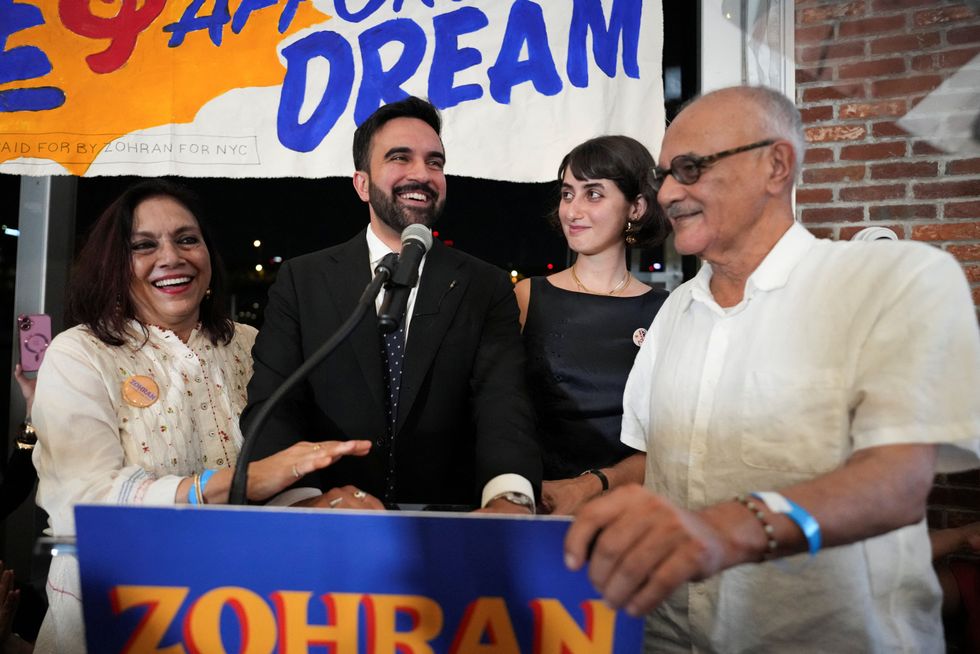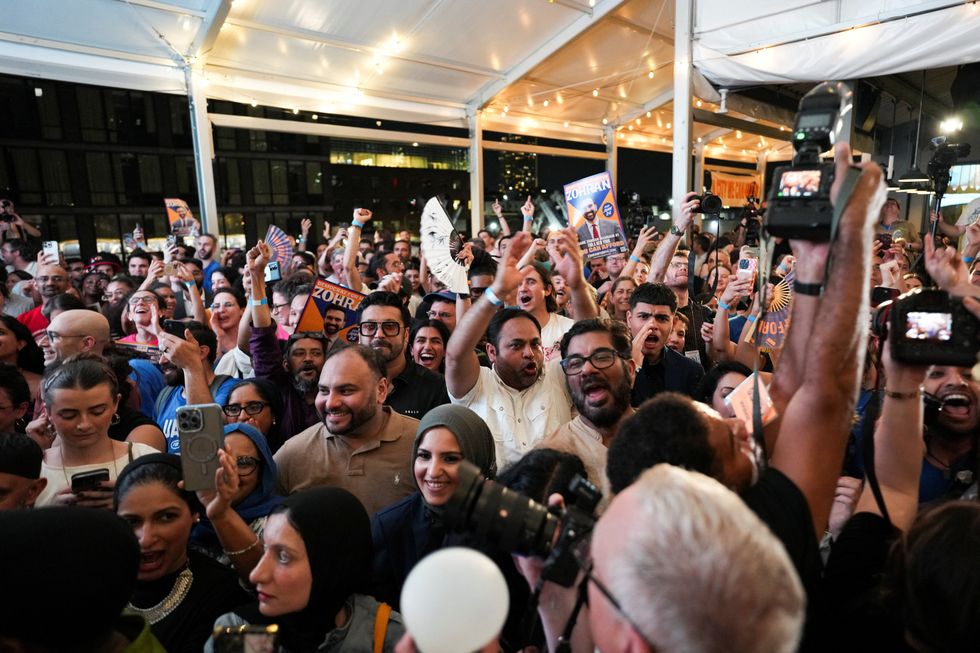THE National Trust, which has come under sustained attacks from the far-right of British politics, has been defended strongly by the classical historian Dame Mary Beard, who last week delivered the Octavia Hill Lecture.
Her theme was, “Who owns the past?”
The trust, founded in 1895 by three people – including the social reformer Octavia Hill – now looks after “over 500 historic houses, castles, ancient monuments, gardens, parks and nature reserves”.
In 2020 it sparked a furious reaction from the far right and especially the “common sense” group of Tory MPs, when it published a 115-page report, revealing some 93 of its stately homes were built on the proceeds of colonial loot or the slave trade.
The trust was accused of “trashing Britain’s history” – a charge Beard has roundly dismissed.
Like her, many have taken the view that the trust was performing a valuable service by shining a light into the dark corners of the British empire.
In February last year, the trust, which is pushing for diversity both in its own staffing and the kind of visitors it attracts, was recognised for its efforts with Eastern Eye’s community engagement award at the annual Arts, Culture and Theatre Awards (ACTAs).
Delivering the second Octavia Hill lecture in the Royal Society’s premises in Carlton House Terrace, London, Beard confronted the trust’s enemies: “Talking of postcolonial ‘wokery’, I can promise you that the trust’s 2020 Interim Report into the ‘Connections between Colonialism and Properties now in the care of the National Trust’, is not a dastardly piece of anti-British subversion. It’s more an exercise in stating the bleeding obvious. But sometimes the bleeding obvious does need stating, as it does in this case, I suspect.”
Beard, 69, is an English classicist, specialising in ancient Rome. She is a trustee of the British Museum and formerly held a personal professorship of classics at Cambridge University.
She is a fellow of Newnham College, Cambridge, and Royal Academy of Arts professor of Ancient Literature. She was introduced to the audience by Hilary McGrady, the National Trust’s director general, who said: “I’m a huge fan of Mary through her books, TV and public commentary. She has completely transformed the way we think about the study of classics, and history more generally.”

In the audience was the former director of the British Museum, Neil M MacGregor who delivered last year’s inaugural Octavia Hill Lecture.
McGrady, who has stood firm despite the storm that has engulfed the trust over its determination to reveal some uncomfortable truths, explained: “The Octavia Hill lectures are intended as a space for people to come together to debate big ideas and challenges that we face, nature, beauty and history, considering the common ground that we share, and what we want to pass on to future generations.”
Beard joked that during many visits to trust properties, “I bust several silly myths. I can reassure you, in case you’ve been worried by reports in the Daily Mail, that the trust is not trying to follow Oliver Cromwell and Vladimir Lenin and abolish Christmas.”
She referred to People, a play by Alan Bennett, launched at the National Theatre in 2012, in which all development plans for a crumbling country house in Yorkshire, called Stacpole, fail and “the house ends up going to the National Trust”.
But Bennett “is also raising bigger issues about our relationship to the material side of history in the country house: issues of authenticity and of ownership, who decides what is put on display, how the past is reconstructed, how it is used, discussed and presented,” Beard continued.
“These are my issues, too, in this lecture. I will be concentrating on National Trust houses and the trust’s own history. And I’ll be touching on a few of its recent controversies about dumbing down or playing politics. I hope the example of the trust and its properties can act as a lens onto wider, macro debates of history and heritage and ownership.” She continued: “Okay, the next step I want to take is a historical one, with a brief journey into the history of the Trust itself. I want to remind us that recent controversies over the ‘ownership of the past’ in my broad sense of ‘ownership’, or over dumbing down for that matter, are not remotely new, but go back to the Trust’s very beginnings in 1895. It’s easy now to get the impression that the Trust has traditionally been a rather genteel organisation. In fact, it’s always been pushy, activist and awkward. Late Victorians were one of the most activist generations ever – it’s us that’s turned them into stuffed shirts.” She went on: “The focus of the politics may have changed over the decades, but the Trust has always been politically engaged in what we would call the culture wars. Much of that polite, sedate image is very misleading.
“Within that broad church – and this is a more serious point – there have always been big disagreements about what the Trust should do, what or whom it was really for.
“Seen more broadly, these conflicts go right to the centre of our cultural engagement with the past, and to important questions of who controls how it is accessed, and by whom. And it’s because they are important that they attract such media attention. We shouldn’t kid ourselves that there is ever going to be a solution, or that we would even want one. It would be a frighteningly North Korean world if we thought we had got heritage ‘sorted’ and neatly agreed on by all.

“History is a dialectical process, not a set of facts. And the whole point of organisations like the Trust – the British Museum would be another – is not so much to solve the debates, as to open-up the fault-lines responsibly and productively – and part of their function is to be a lightning rod for our cultural disagreements – when they get attacked, they’re actually doing their job.”
She said: “I would love to see the Trust being bolder about what its historic houses could offer to contemporary debates. I’d love it to seem more confident about the excitement and appeal of its historic collections. Knowing about the past is both fun and empowering.
“As a responsible democracy we need those stories. It’s hardly an exaggeration to say that there is no better, or safer, space than historic houses to discuss, admire, deplore, or challenge both the past and the present. I’m not trying to frown on the simple pleasures of a ‘good day out’ and a National Trust scone. But don’t let’s forget that these houses – being in them, looking around them, immersing yourself in them – are also an almost unrivalled laboratory for facing the complexity of history, for seeing it afresh, for owning it and debating it. And people both old and young want to debate the past.”
Beard welcomed the trust’s role in stimulating historical debate. She said: “I do think it has an obligation to provide an enabling environment for people not just to admire the past, but to understand it better, to discuss it, debate it, face up to its horrors and to its implications for us. To ‘own’ it again.”
After her lecture, Beard had a discussion with Dr Gus Casely-Hayford, director of V&A East, when she spoke of how British museums could learn from India: “I recently went to Mumbai, to the CSMVS (formerly the Prince of Wales) Museum, and there they have a fleet of mobile museums that go round the suburbs. We could do that.

















 Zohran Kwame Mamdani with his parents, Mira Nair and Mahmood Mamdani , and his wife, Rama Duwaji
Zohran Kwame Mamdani with his parents, Mira Nair and Mahmood Mamdani , and his wife, Rama Duwaji Mamdani's supporters celebrate his nomination
Mamdani's supporters celebrate his nomination